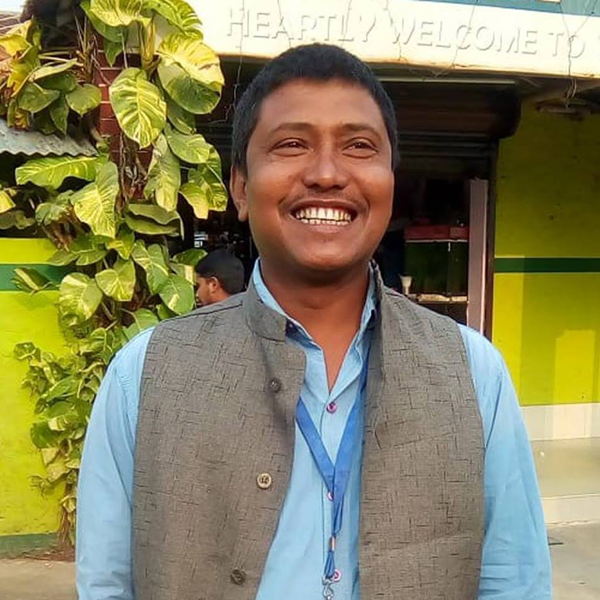Lumbini Province
Hospitals unprepared to screen and treat black fungus cases
Black fungus patients have to be sent to Kathmandu for treatment, as the region is unable to handle the infection.
Thakur Singh Tharu
Health workers are suspecting that a 60-year-old man from Kapilvastu, who had recovered from Covid-19 earlier, recently died of black fungus at the Lumbini Provincial Hospital.
The man, a patient of diabetes, had recovered from the virus at the Corona Hospital in Butwal last month.
“But after he recovered and was discharged from the hospital’s ICU, he started complaining of prolonged headaches and even lost his vision. The patient died in the course of treatment at Lumbini Provincial Hospital,” said Dr Sudarshan Thapa, senior consultant physician at the hospital. “He had all the symptoms of black fungus. We did not document the patient’s condition as black fungus, but we believe that the patient died of the disease.”
The “black fungus” is an infection caused by a group of fungi, which is on the rise among Covid-19 patients and survivors, doctors say.
In the last two weeks, four Covid-19 patients were found with the black fungus infection at Nepalgunj-based Bheri Hospital.
“Among the four patients, one died while undergoing treatment at the hospital,” said Dr Rajan Pandey, chief consultant physician at the Bheri Hospital.
According to him, patients with diabetes are more vulnerable to black fungus.
Black fungus is not transmissible like Covid-19, said Naresh Shrestha, the health officer in Banke.
“The infections can be seen in one out of 1,000 Covid-19 patients,” he said. “We have sent some black fungus patients from Nepalgunj to Kathmandu for treatment in the last few days.”
According to doctors, black fungus develops in Covid-19 patients when they are treated through supplemental oxygen and steroid medicines in the High Dependency Unit or Intensive Care Unit.
“A patient’s immune system gets compromised during the treatment for Covid-19 and that is when the fungus develops in them,” said Dr Thapa. “Sometimes, eye removal surgeries are needed to stop fungal infection from reaching the brain.”
So far, black fungus patients have not been reported in Kapilvastu. Dr Kishor Banjade, medical superintendent of the District Hospital in Kapilvastu, said the hospital has been alerted on the rising cases of black fungus in the country and that it will be on the lookout for the infection.
Meanwhile, in Bardiya district, there’s not a single preparation going on to prevent and treat black fungus.
“We have no ophthalmologist here. This is why the treatment of black fungus is not possible in the district,” said Dr Subhash Pandeya, medical superintendent of the District Hospital in Bardiya.
Similarly, the health institutions in Sudurpaschim Province, which are already suffering from a poor health infrastructure, are far from prepared to handle the impending threat of black fungus. Seti Provincial Hospital in Dhangadhi, the major hospital in the province, is yet to prepare treatment services for black fungus patients.
“We are yet to ascertain if there are black fungus cases in Sudurpaschim Province or not. We need to be fully prepared for the treatment of such patients, as many people in neighbouring India are suffering from the disease,” said Dr Sher Bahadur Kamar, a consultant physician at the provincial hospital. “Black fungus cases have not been reported in the hospital as of now.”
Dr Hemraj Pandey, the medical superintendent at the provincial hospital, admits that the institution could have problems in providing treatment to black fungus patients in the region.
“We need to think about the possible cases of black fungus and prepare accordingly,” said Pandey. “The hospital will take the necessary initiatives to handle the infection.”
Mahakali Hospital in Mahendranagar, meanwhile, claims that it has started preparations to identify black fungus cases and provide treatment to the patients.
“The hospital has been holding regular talks with ENT (ear, nose and throat) doctors for the diagnosis and treatment of black fungus patients. The process to buy medicines required for the treatment of black fungus is also underway,” Dr Hari Shrestha, the medical superintendent at Mahakali Hospital. “Both the Covid-19 patients and doctors should be careful about the possible contraction of the fungus.”
Currently, 50 Covid-19 patients are receiving treatment at Mahakali Hospital. “The hospital has not reported any black fungus cases so far,” said Dr Gobinda Rokaya, the coronavirus focal person at the hospital.
(Sanju Paudel in Rupandehi, Manoj Paudel in Kapilvastu, Kamal Panthi in Bardiya, Arjun Shah in Dhangadhi and Bhawani Bhatta in Kanchanpur contributed reporting.)




 21.02°C Kathmandu
21.02°C Kathmandu













